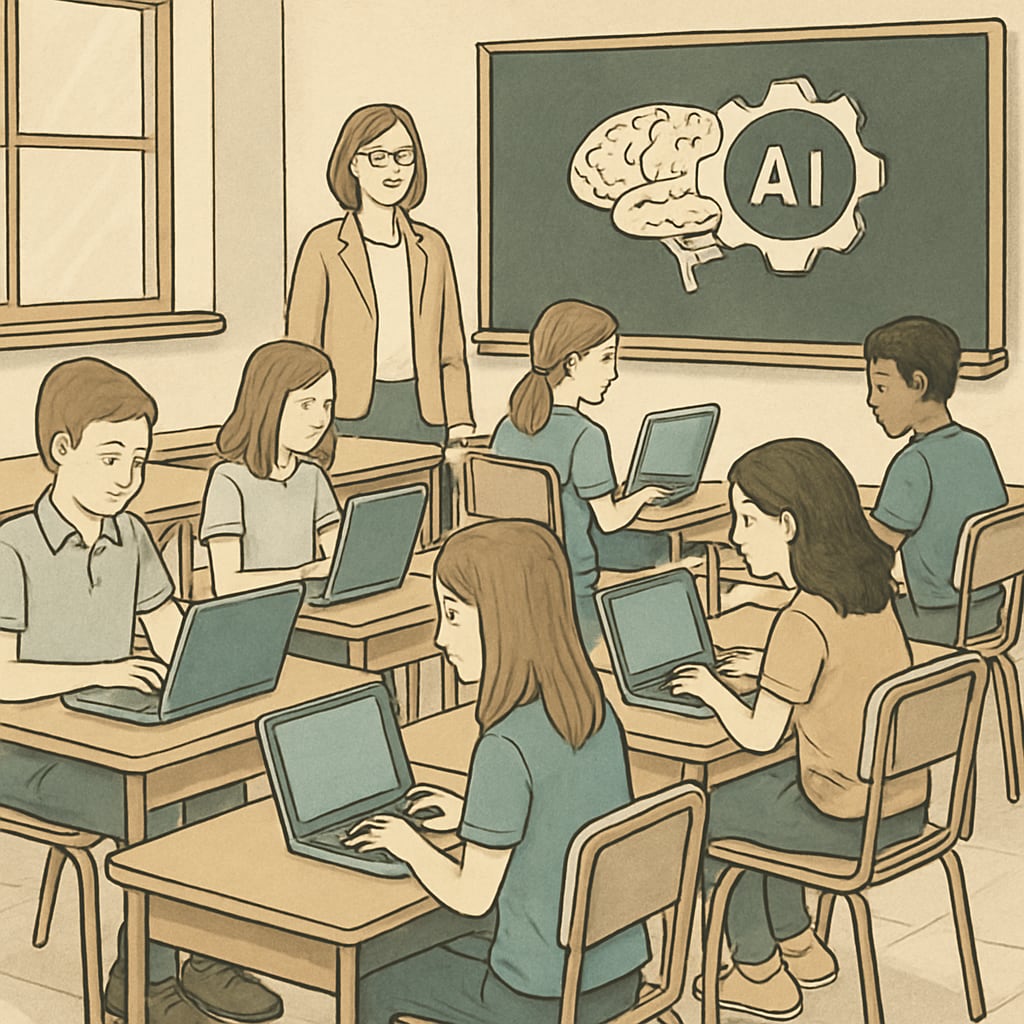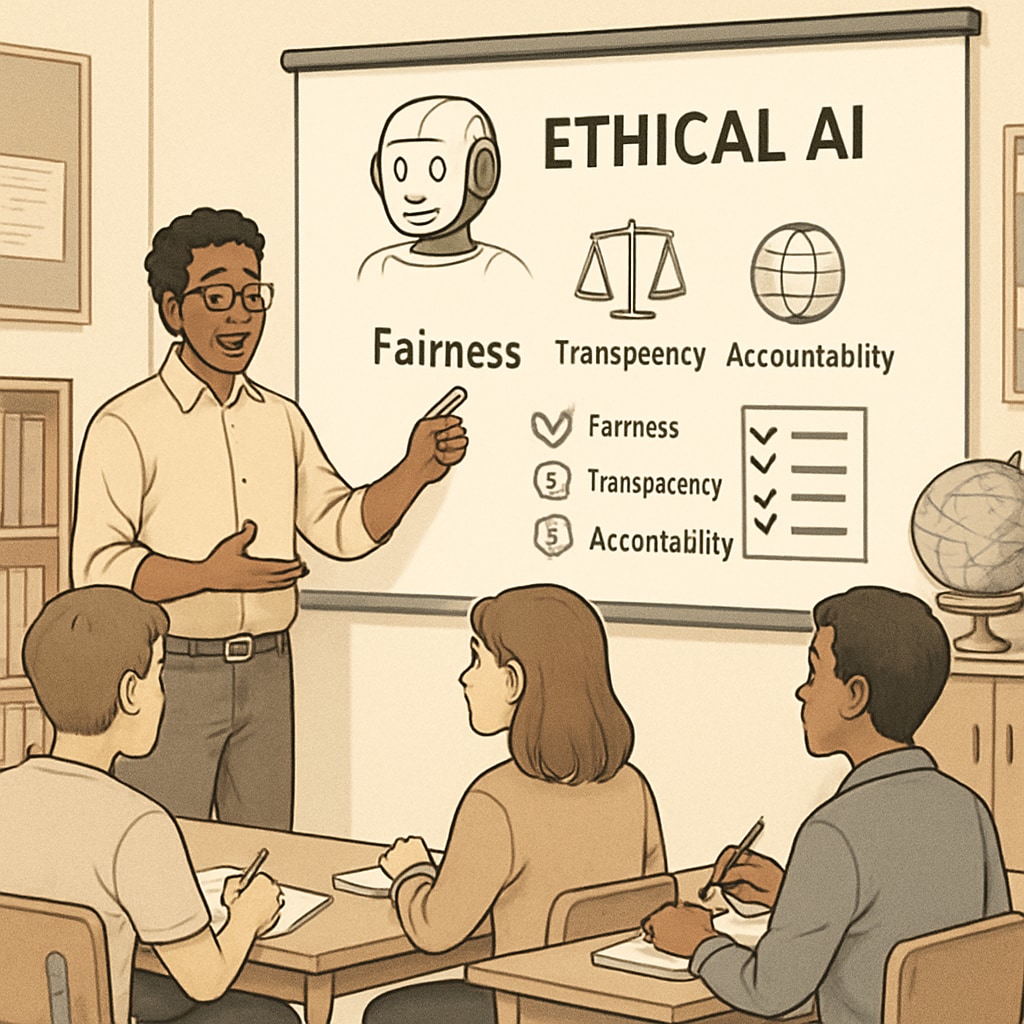The rapid integration of AI tools in educational environments has sparked intense debate about their role in fostering learning and maintaining academic integrity. In K12 education, these technologies present unique challenges as students increasingly use AI to complete assignments, raising questions about authenticity and the value of the learning process. This article examines the implications of AI tools on academic integrity, the limitations of current detection technologies, and offers practical solutions for educators to balance innovation with honesty.
The Rise of AI in Education: Transforming Learning and Teaching
Artificial intelligence has transformed learning, providing students with tools to enhance understanding, streamline work, and even generate content. For example, platforms like ChatGPT and other generative AI models allow students to produce essays, solve equations, and complete tasks with minimal effort. While these tools have the potential to make education more accessible, they simultaneously challenge the traditional concepts of academic honesty and personal effort.
For K12 students, this presents a particularly complicated scenario. Young learners are at a critical stage of developing foundational skills and ethical practices. If AI tools are used to shortcut their efforts, students may miss opportunities to build critical thinking and problem-solving skills. Educators are now tasked with the dual responsibility of embracing AI’s benefits while curbing its misuse in assignments and exams.

Challenges in Detection: Why Current Tools Fall Short
As AI-generated content becomes more sophisticated, identifying its use in student work is increasingly difficult. Current detection tools, such as AI content detectors or plagiarism checkers, often struggle to keep pace with advancements in AI technology. These tools rely on algorithms to identify patterns indicative of machine-generated text, but they are far from foolproof.
Some of the key limitations include:
- False Positives: Certain human-written content may inadvertently mimic AI-generated text, leading to inaccurate results.
- Adaptability Issues: As AI models improve, their outputs become more indistinguishable from human writing, rendering detection tools less effective.
- Lack of Context: Detection tools often fail to consider the context, such as a student’s prior writing style or ability level.
These limitations highlight the need for a more comprehensive approach to uphold academic integrity in K12 education.
Solutions for Educators: Balancing Innovation and Academic Honesty
While detection tools will continue to improve, they are not a standalone solution. Educators must adopt a multifaceted approach to address the challenges posed by AI tools in education. Below are some strategies to promote ethical AI usage while ensuring learning outcomes:
- Redesign Assignments: Focus on tasks that require critical thinking, personal reflection, or hands-on activities, which are harder for AI to replicate.
- Incorporate AI Literacy: Teach students about the ethical implications and limitations of AI tools, encouraging responsible use.
- Encourage Collaboration: Group projects and peer reviews can reduce reliance on AI tools and foster genuine learning experiences.
- Use Mixed Assessment Methods: Combine traditional exams, oral presentations, and interactive assessments to evaluate student understanding effectively.

Additionally, schools and educators should establish clear guidelines on AI usage in academic work. Transparent policies can help students understand what is acceptable and what constitutes academic dishonesty. For example, allowing AI as a supplementary resource rather than a primary tool for assignments can strike a balance between leveraging technology and maintaining integrity.
The Future of AI and Academic Integrity in K12 Education
As AI continues to evolve, so too will its impact on education. The challenge for K12 educators is not to ban AI outright but to integrate it in ways that enrich learning while preserving the core values of academic integrity. Open dialogues with students, parents, and fellow educators will be crucial in navigating this complex landscape.
In conclusion, while AI tools undeniably enhance educational opportunities, they also bring significant challenges to academic honesty. By fostering a culture of ethical AI usage and implementing proactive strategies, educators can ensure that students benefit from these technologies without compromising their learning journey.
Readability guidance: This article uses concise paragraphs and bullet points for clarity. Key concepts are introduced with examples, while transitions (e.g., “however,” “in addition”) ensure smooth reading. The content balances technical insight with actionable advice for educators.


